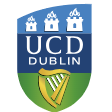Introduction
The University of Dublin, also commonly known as Trinity College Dublin, is the oldest university in Ireland. It is located in Dublin, the capital of Ireland, and is a public research university with important international influence.
Overview
Number of students: In 2014, the total number of students was 16,729, including 12,420 undergraduates and 4,309 postgraduates.
Number of teachers: In 2014, there were 777 academic staff and 2,097 administrative staff, including 606 researchers.
History and establishment time
Founded in 1592, Queen Elizabeth I of England and Ireland issued a charter to establish Trinity College as the "Mother of Universities". It is the oldest university in Ireland. It was originally planned to establish multiple colleges under the University of Dublin, but in the end only Trinity College was built. Today, in daily use, the names "University of Dublin" and "Trinity College Dublin" are usually interchangeable, but there are some differences between the two in terms of law and other aspects.
School Strength
Teaching Staff: It has a high-quality teaching staff, many of whom have profound academic attainments and rich teaching experience in their respective disciplines, providing students with high-quality education and teaching services.
Scientific Research Level: It has carried out extensive and in-depth research in many disciplines, especially in traditional disciplines such as literature, history, philosophy, theology, medicine, law, mathematics, physics, computer science, as well as emerging fields such as biotechnology, nanotechnology, and financial technology. Significant scientific research results have been achieved. The research results have a high influence in the international academic community and have made important contributions to promoting the development of disciplines and solving practical problems.
Teaching Resources: The school has rich teaching resources, including modern teaching buildings, laboratories, libraries, computer centers and other teaching facilities, as well as various academic databases, e-books, online learning platforms and other digital resources, providing good conditions for students' learning and research. In addition, the school has established cooperative relations with many well-known enterprises and scientific research institutions at home and abroad, providing students with opportunities for internships, practice, scientific research cooperation, etc., broadening students' horizons, enhancing their practical ability and employment competitiveness.
Institutional nature
Public research university.
Educational philosophy
Focus on cultivating students' critical thinking, innovation, leadership and social responsibility, emphasizing the inheritance and innovation of knowledge, encouraging students to continuously explore and progress in academic research and social practice, and committed to cultivating outstanding talents with global vision, professional quality and comprehensive ability for the society to promote social development and progress.
Key laboratories and disciplines
Key disciplines: Literature, history, philosophy and other humanities and social sciences enjoy a high reputation internationally, and its medicine, law, mathematics, physics, computer science and other disciplines also have strong strengths. In the 2023 QS World University Subject Rankings, subjects such as library and information management, English language and literature, veterinary science and petroleum engineering ranked in the top 50.
Key laboratories and research centers: The school has a number of key laboratories and research centers, such as the Conway Institute for Biomolecular and Biomedical Research and the Institute for Social Change. These research institutions have gathered a group of outstanding scientific researchers, equipped with advanced scientific research equipment, and carried out cutting-edge research in the fields of biomedicine and social sciences.
Faculty
The school has 6 first-level colleges, including the School of Humanities and Arts, the School of Business, the School of Engineering and Architecture, the School of Health and Agricultural Sciences, the School of Science, the School of Social Sciences and Law, and 38 second-level colleges.
Ranking
2023 QS World University Rankings 171.
2023 Times Higher Education World University Rankings 201-250.
2022 Academic Ranking of World Universities 301-400.
Expenses
Tuition fees: Tuition fees vary for different majors. Undergraduate courses cost approximately 15,000-25,000 euros / The tuition fee for postgraduate courses is between 18,000-35,000 euros per year.
Living expenses: In Dublin, the living expenses for one year are about 10,000-15,000 euros, including accommodation, food, transportation and other expenses.
Campus
The main campus is located in the center of Dublin. The campus covers an area of 46.8 hectares. The architectural style is unique, combining ancient buildings with modern teaching and research facilities. The Trinity College Library on campus is the largest library in Ireland, with a large collection of precious manuscripts, ancient books and modern books, including the famous "Book of Kells". In addition, the campus also has beautiful gardens, squares, museums and other cultural landscapes, providing students with an elegant learning and living environment.
-

Dublin City University
-
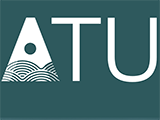
Atlantic Technological University
-
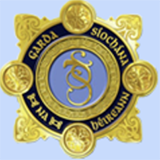
Garda Síochána College
-
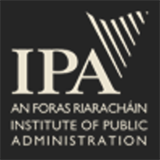
Institute of Public Administration
-
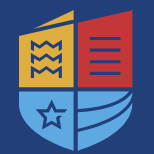
Munster Technological University
-
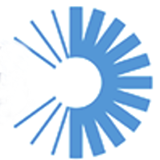
Dublin Business School
-
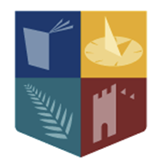
Maynooth University
-
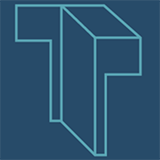
Technological University Dublin
-
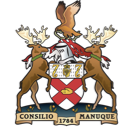
Royal College of Surgeons in Ireland
-
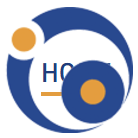
ICD Business School
-

Mesoamerican University
-

Istmo University
-

Mariano Galvez University of Guatemala
-

Regional University of Guatemala
-

Galileo University
-

Francisco Marroquín University
-

Rafael Landívar University
-

University of the Valley of Guatemala
-

University of San Carlos of Guatemala
-

Technological Institute of Tlaxcala Plateau
-

Golfo University
-

Technological University of South Sonora
-

Technological University of Huejotzingo
-

Tizimín Institute of Technology
-

Chilpancingo Institute of Technology

